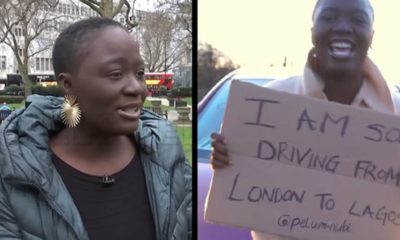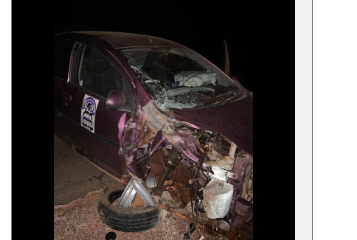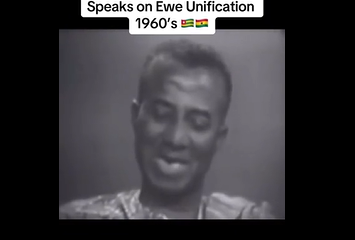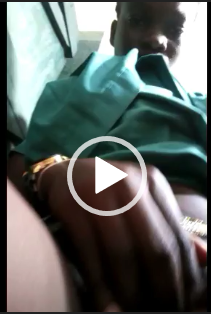GENERAL NEWS
‘Sasabonsam’: Watch as London-based Ghanaian in 1966 tore down Nkrumah’s images in anger
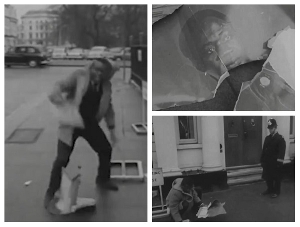
After being deposed in a coup on February 24, 1966, by a joint military and police operation led by the National Liberation Council, President Kwame Nkrumah never made a return to the country until his demise.
Prior to his overthrow, Dr. Kwame Nkrumah had left Ghana two days earlier for Vietnam-Hanoi in what would be a mission of no return. He went away on a peace mission with the premise of getting Ghana’s colleague Commonwealth nations to end the Vietnam War.
The coup, which was code-named “Operation Cold Chop,” lasted about 24 hours and saw the statue of the president smashed to pieces right outside Ghana’s Parliament House.
The structure was defaced and battered to the ground while people went out to jubilate.
While the jubilation erupted on the streets of Accra and across the country, a Ghanaian resident in the United Kingdom staged what seemed to be a one-man protest to register his disdain for the ousted Ghanaian president.
A video posted by @GhanaianMuseum via X showed the visibly angry Ghanaian in front of the Ghana Consular office tearing into pieces Nkrumah’s image.
Moments after completely smashing the portrait to pieces, he was asked by a nearby police officer to pick up the pieces thereafter.
Back home, citizens thronged the streets of Accra in a big procession from the Hall of the Trade Unions through the capital’s principal streets, dancing, singing and jubilating over Nkrumah’s overthrow.
Protesters were seen with placards on the streets with inscriptions such as, “No more hero worship”, Ghanaians are now free”, “Nkrumah is a wicked man”, “No more Nkrumaism,” among others.
An eye-catching moment from a video of the day’s protest in possession of GhanaWeb showed a bizarre drawing of President Kwame Nkrumah with the inscription on it reading, “Sasabonsam”, a popular term used to refer to the devil.
It will be recalled that on February 12, 1951, Dr Nkrumah received a rousing hero’s welcome from the Ghanaian people after he was released from prison following his victory in the general elections on the ticket of his political party, the Convention People’s Party (CPP).
This came after he was arrested in 1950, after being accused of leading a ‘disturbing positive action’ campaign against the British colonial rule in the then Gold Coast, which later led to Ghana’s independence on March 6, 1957.
Watch the video below.
Footage: After the coup in Accra which ousted President Nkrumah in 1966. Far away in london, a jubilant Ghanaian went to the Ghana consular office and tore to pieces a large portrait of Nkrumah. He was obliged by the police to smother his triumph and pick up the pieces. pic.twitter.com/1OjicktTJg
— GHANA FACTS & HISTORY (@GhanaianMuseum) April 9, 2024
Source: www.ghanaweb.com
-
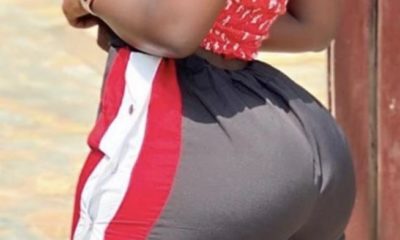
 Lifestyle1 month ago
Lifestyle1 month agoRoad Safety Authority narrates how buttocks causes road accident
-
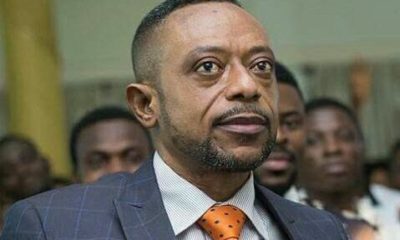
 GENERAL NEWS1 month ago
GENERAL NEWS1 month agoWhy 15 police officers stormed Owusu Bempah’s church – Kumchacha narrates
-
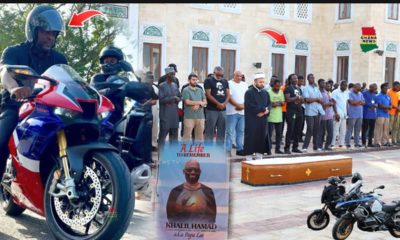
 GENERAL NEWS1 month ago
GENERAL NEWS1 month agoWatch how Ibrahim Mahama rode Honda superbike to pay last respects to late friend
-
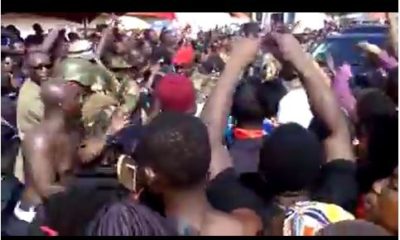
 GENERAL NEWS1 month ago
GENERAL NEWS1 month agoHow Offinso residents storm destooled queen mother’s house, demand for new chief
-

 South Africa News1 month ago
South Africa News1 month agoWoman thrown out of a speeding taxi while on her way to work
-
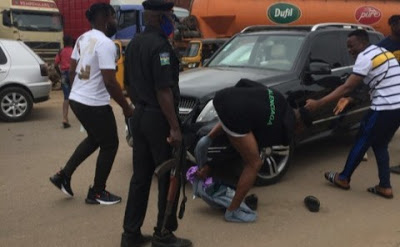
 GENERAL NEWS2 weeks ago
GENERAL NEWS2 weeks agoDeadly clash between youth and navy personnel results in two deaths at Tema Manhean
-
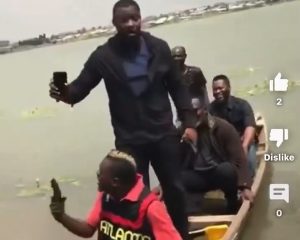
 SHOWBIZ KONKONSAH3 weeks ago
SHOWBIZ KONKONSAH3 weeks agoJunior Pope’s Death: Video of John Dumelo refusing to join canoe for movie shoot over safety concerns resurfaces
-
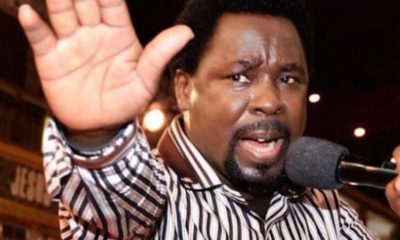
 News Africa2 months ago
News Africa2 months ago‘Satanically dubious’ – SCOAN releases statement on BBC’s report about TB Joshua, church



